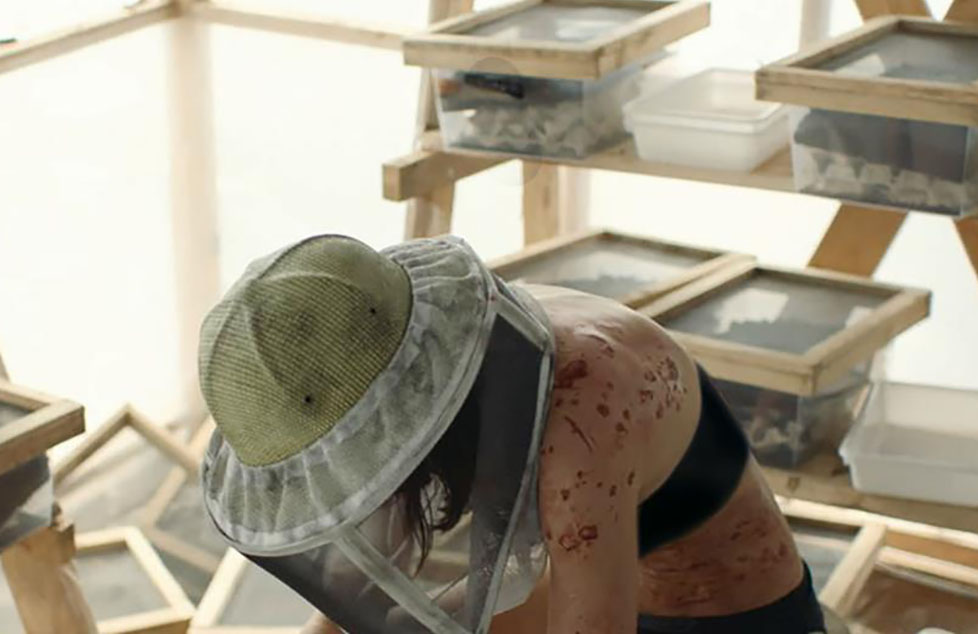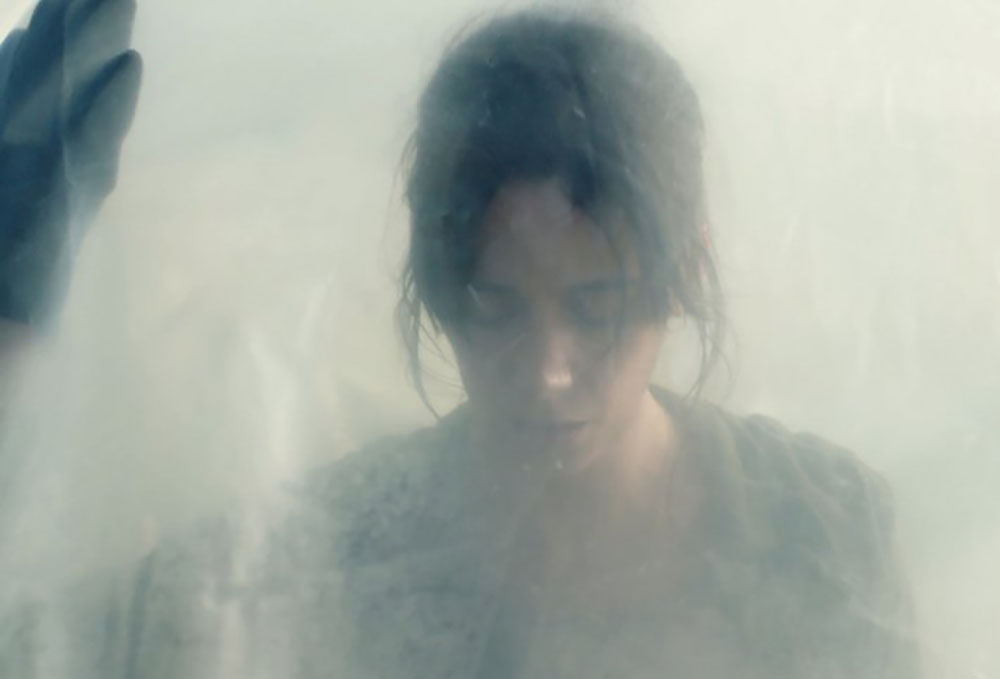Netflix has released many horror flicks recently due to the spooky month celebration; however, weeks before an intriguing French horror movie was available with the title “The Swarm” (La nuée,” original title).
Firstly, I thought it was to be a remake of the late ’70s movie starring Michael Caine with killing bees. What actually is similar is the genre (although this time less comedic) and the inclusion of insects—now locusts. The latter is quite unexpected and catches your attention even more.
Virginie is a widow living with her son and daughter in rural France, raising locusts for protein or animal food. The main character focuses on work, trying to make a living (the locusts are not procreating enough, therefore she can’t keep up with the demand) and almost turning all of it into an obsession, causing all to affect the inner-circle of the family, as they slowly fade away from each other.
One day Virginie, after an accident in the nests, discovers the locusts eating from her wounds, affecting them in such a way she would not expect.
Horror comes in many forms during “The Swarm,” even Biblical proportions, also as a result of struggle and urge to survive, no matter what. There are many aspects which bother the mind after viewing. One of them is the already mentioned religious aspect as the main character starts playing God for her own gain; in the end she falls prey to the same ‘creation’ thus being an enormous swarm of locusts.

On we go and we can’t pass the analogy with the Frankenstein character, this time being locusts. Virginie creates a new form of locusts, flesh-eating ones; they eventually escape their own master, spreading havoc and death and also attacking the master herself.
The third and last point is the concept of mass production, adjusting nature to our own needs, not minding the future consequences, on a small or world scale. The overgrowing population and the demand of the market keeps growing and a small business just can’t keep up. Eventually, this small business has to find a proper solution for itself, not necessarily working for the environment or the people. And the problem grows as indirect casualties rise just for the fact to create 10 more items (of a brand) that last month…
This French horror taken as a neoliberal and capitalistic critique makes its point. From a cinematic point of view they should’ve worked more on the script (dialogues) and the acting. In this way they could’ve inserted more emotion and suspense, which was missing through the whole movie.
“The Swarm” is available to watch on Netflix via subscription.


